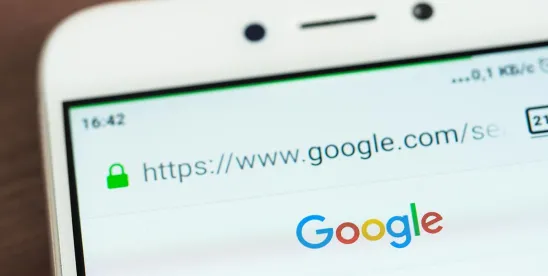Taking a step away from TCPA (and there is a lot going on there) for a moment to talk about a recent case that affects marketers everywhere. The Second Circuit just issued a case that addressed the practice of bidding on competitor’s keywords. And there are lessons in the case for both sides of the argument.
In 1-800-Contacts, Inc., v. Jand, Inc., dba Warby Parker, 2024 WL 4439136 (2nd Cir. Oct. 8. 2024), 1-800 Contacts (“1-800”) argued that Warby Parker was bidding on 1-800’s trademarks on Google Search and this violated the Lanham Act. To prevail on a Lanham Act claim, 1-800 must show initially, their marks are protected, and then they must show that Warby Parker’s using the mark “in commerce” would cause likely cause confusion.
The problem for 1-800 is they never claim that “Warby Parker actually displayed or used [1-800’s] trademarks; it alleges only that Warby Parker purchased search engine keywords consisting of the trademarks in the online search engine auctions.” So, while Warby Parker was bidding on the terms in the Google backend, Warby Parker’s ads which were actually shown to the consumer never mentioned 1-800. Furthermore, 1-800 claimed Warby Parker’s website and landing page caused customer confusion because of similar styling and color choices to 1-800’s websites.
For 1-800 to have adequately alleged trademark infringement, there are three components to a search advertising campaign for the court to analyze:
(1) the defendant purchase of the competitor’s marks as keywords;
(2) the ads placed on the search result for the competitor’s marks; and
(3) the defendant’s landing webpage to which its ads are linked.
For the first component of the analysis, the court found that “the mere act of purchasing a competitor’s trademark’s as keywords in the search advertising context does not constitute trademark infringement or unfair competition.” In fact, the court said:
Despite 1-800’s emphasis on the allegedly nefarious nature of Warby Parker’s keyword bidding activities, this well-known internet marketing strategy – by itself – does not support a claim of trademark infringement absent additional use of 1-800’s Marks. (emphasis in original).
For the second component (the ads on the SERP), while looking at a similarity-of-the-mark analysis the ads “should be assessed as it relates to the paid advertisement’s appearance on the result page.” Essentially, on the SERP does the ad cause confusion? Here, Warby Parker’s ads were clearly marked as ads, made no mention of 1-800 Contacts, and only contained Warby Parker Marks, not 1-800’s Marks.
A similar finding was the result of an analysis of the landing page. Again, here the landing page only had Warby Parker’s Marks, the images were different and no mention of 1-800 was made anywhere on the page which would cause consumer confusion. And nowhere did 1-800 alleged ACTUAL customer confusion.
Because 1-800’s “pleadings failed to plausibly allege that Warby Parker used 1-800’s Marks anywhere during the search process outside of its purchase at the initial permissible keyword auction”, the 2nd Circuit found that “the mere act of purchasing a competitor’s trademarks in the context of keyword search advertising does not constitute trademark infringement.”
Trademark owners have to police their trademarks. If a competitor is bidding on your trademarks AND using your trademark in the advertisement or their landing pages, then you might have a claim. But, if they only show up on your trademarks, this case makes it clear that is not enough.




 />i
/>i

